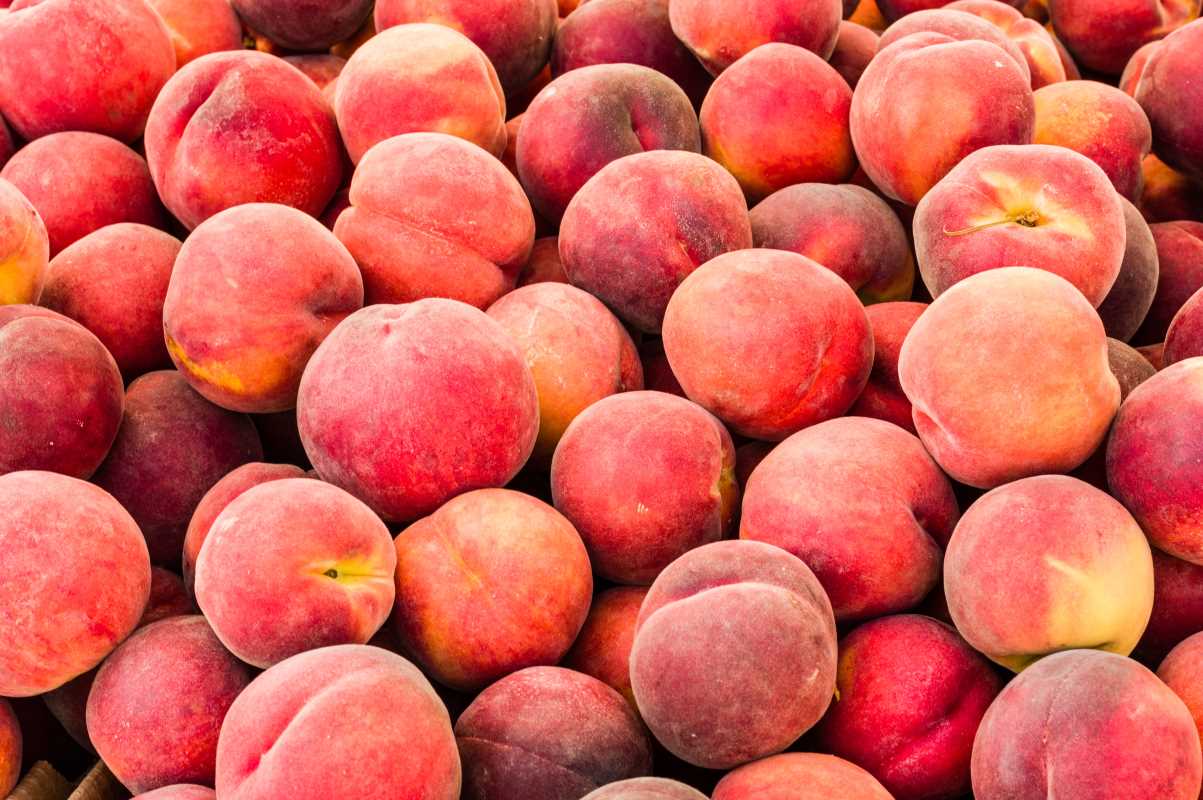Pesticide residue is a concern for many people when it comes to selecting fruits and vegetables. Some produce items are more prone to retaining these chemicals, while others tend to be much safer. Here's a look at some fruits and vegetables that either rank high in pesticide levels or are relatively clean.
Strawberries
Strawberries are delicious but often top the list of fruits with the highest pesticide residues. Their delicate skin and the fact that they grow close to the ground make them susceptible to absorbing a variety of chemicals used in conventional farming. Washing strawberries thoroughly can help, but going organic is the best option.
- Pesticide Concern: Frequently ranked as the most contaminated fruit.
- Skin Type: Fragile, easily absorbs pesticides.
Spinach
Spinach is a nutritious leafy green, but it’s also notorious for its high levels of pesticide residues. Due to its thin leaves, spinach can easily absorb the chemicals sprayed during farming. Opting for organic spinach can help reduce exposure to these harmful substances.
- Pesticide Concern: Commonly found with high pesticide levels.
- Leaf Type: Thin, easily penetrates by chemicals.
Apples
Apples are one of the most popular fruits, but they also tend to carry a significant pesticide load. Even after peeling, some residues may still remain. To avoid this, consider buying organic apples, especially if you consume them frequently.
- Pesticide Concern: High levels detected even after peeling.
- Skin Type: Thin, waxy coating retains pesticides.
Grapes
Grapes, especially imported ones, often rank high in pesticide contamination. Their thin skins and clustering growth pattern make them particularly vulnerable to absorbing pesticides. Washing grapes thoroughly before eating is essential, though choosing organic is even better.
- Pesticide Concern: High, especially in imported varieties.
- Skin Type: Thin, clusters trap chemicals.
Tomatoes
Tomatoes are versatile and found in many dishes, but they are also prone to pesticide residue. Their thin skin does little to protect them from absorbing chemicals. Consider purchasing organic tomatoes or growing your own to minimize pesticide exposure.
- Pesticide Concern: Notorious for retaining pesticides.
- Skin Type: Thin, easily absorbs chemicals.
Celery
Celery is often overlooked, but it's one of the vegetables with the highest pesticide residues. Its lack of a protective outer layer makes it more susceptible to contamination. Washing can help, but organic celery is a safer choice.
- Pesticide Concern: High due to lack of protective skin.
- Structure: Ribbed, retains chemicals easily.
Peaches
Peaches are juicy and sweet but often come with a side of pesticides. Their fuzzy skin can hold onto pesticide residues even after washing, making them a fruit that’s better bought organic.
- Pesticide Concern: Significant levels detected.
- Skin Type: Fuzzy, traps pesticides.
Potatoes
Potatoes are a staple in many diets, but they are also among the vegetables with the most pesticide residues. Since they grow underground, they are exposed to various chemicals used in soil treatment.
- Pesticide Concern: High, particularly in non-organic varieties.
- Growth Environment: Soil absorbs and retains chemicals.
Kale
Kale is a superfood, but it's also super at retaining pesticides. The crinkly leaves provide plenty of surface area for chemicals to stick to, making thorough washing essential. However, buying organic kale can reduce the risk.
- Pesticide Concern: Commonly found with high residues.
- Leaf Type: Crinkly, retains chemicals easily.
Peppers
Peppers, particularly bell peppers, often contain high pesticide levels. Their thin skin and large surface area make them susceptible to contamination, so opting for organic varieties is a safer choice.
- Pesticide Concern: High levels found, especially in colored varieties.
- Skin Type: Thin, easily absorbs chemicals.
Avocados
On the other hand, avocados are a fruit that tends to have low pesticide residues. Thanks to their thick skin, the inner flesh is well-protected from chemicals, making them a safe choice even when conventionally grown.
- Pesticide Concern: Low due to thick skin.
- Protection: Thick skin protects the flesh.
Sweet Corn
Sweet corn is another safe option when it comes to pesticide residues. The husk that surrounds each ear of corn protects the kernels from direct exposure to chemicals, making it a low-risk vegetable.
- Pesticide Concern: Low, well-protected by husk.
- Protection: Husk shields kernels from pesticides.
Understanding which fruits and vegetables carry higher pesticide residues can help you make more informed choices at the grocery store. Opting for organic options when necessary and enjoying conventionally grown produce with natural protections allows you to maintain a healthy and balanced diet while minimizing exposure to harmful chemicals.
(Image via Adobe)







